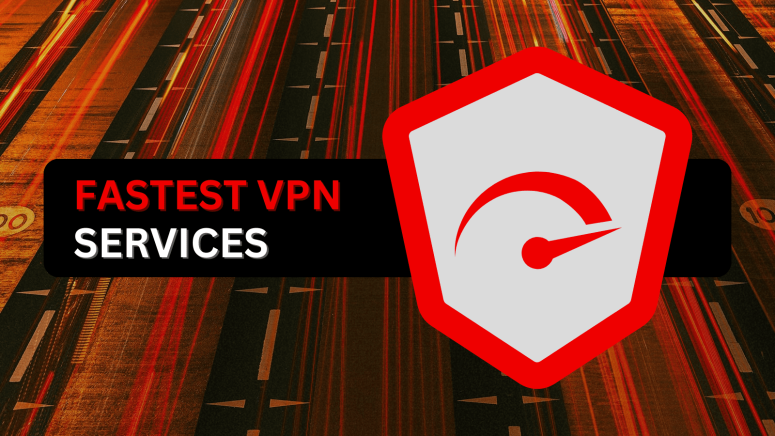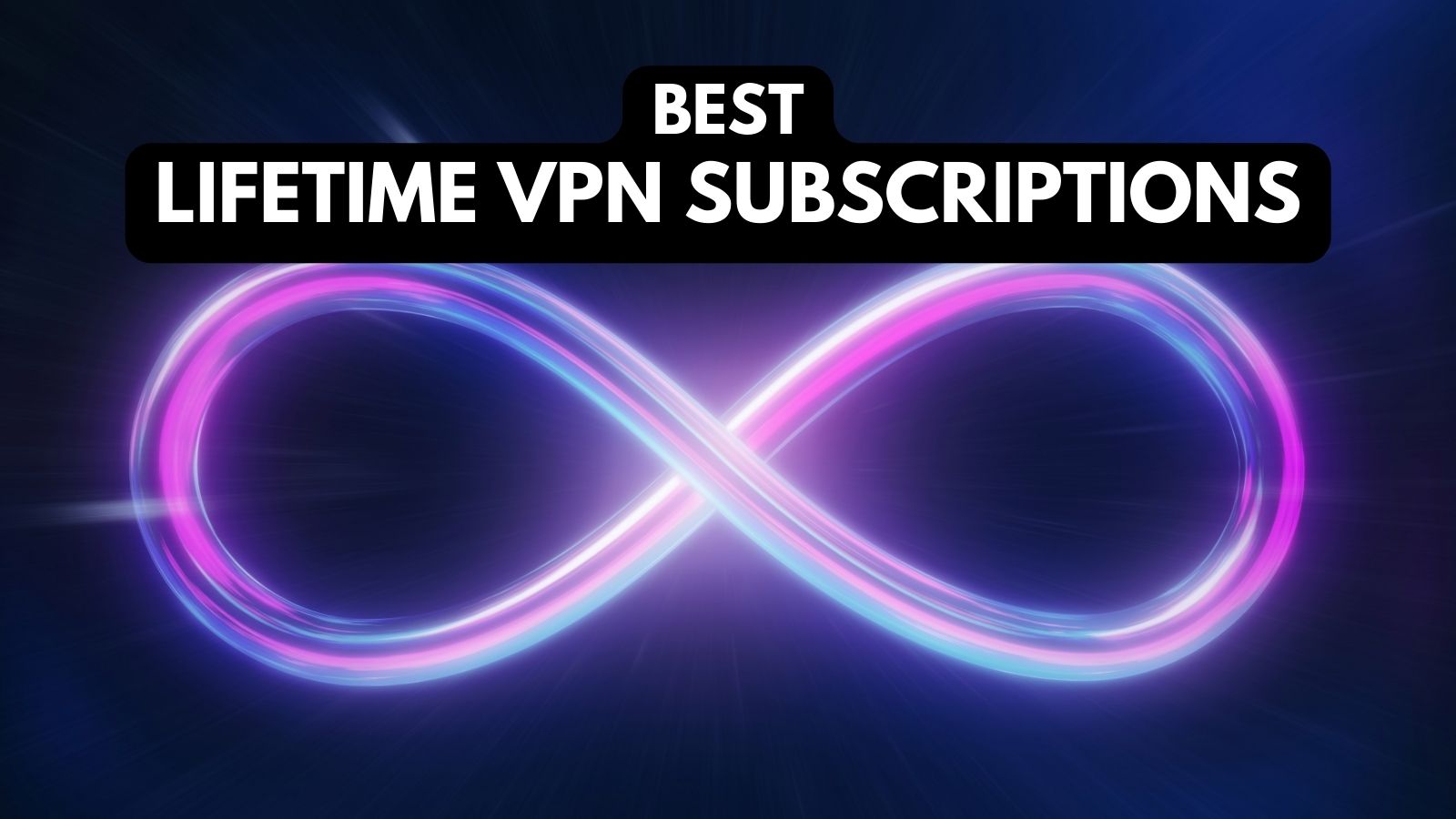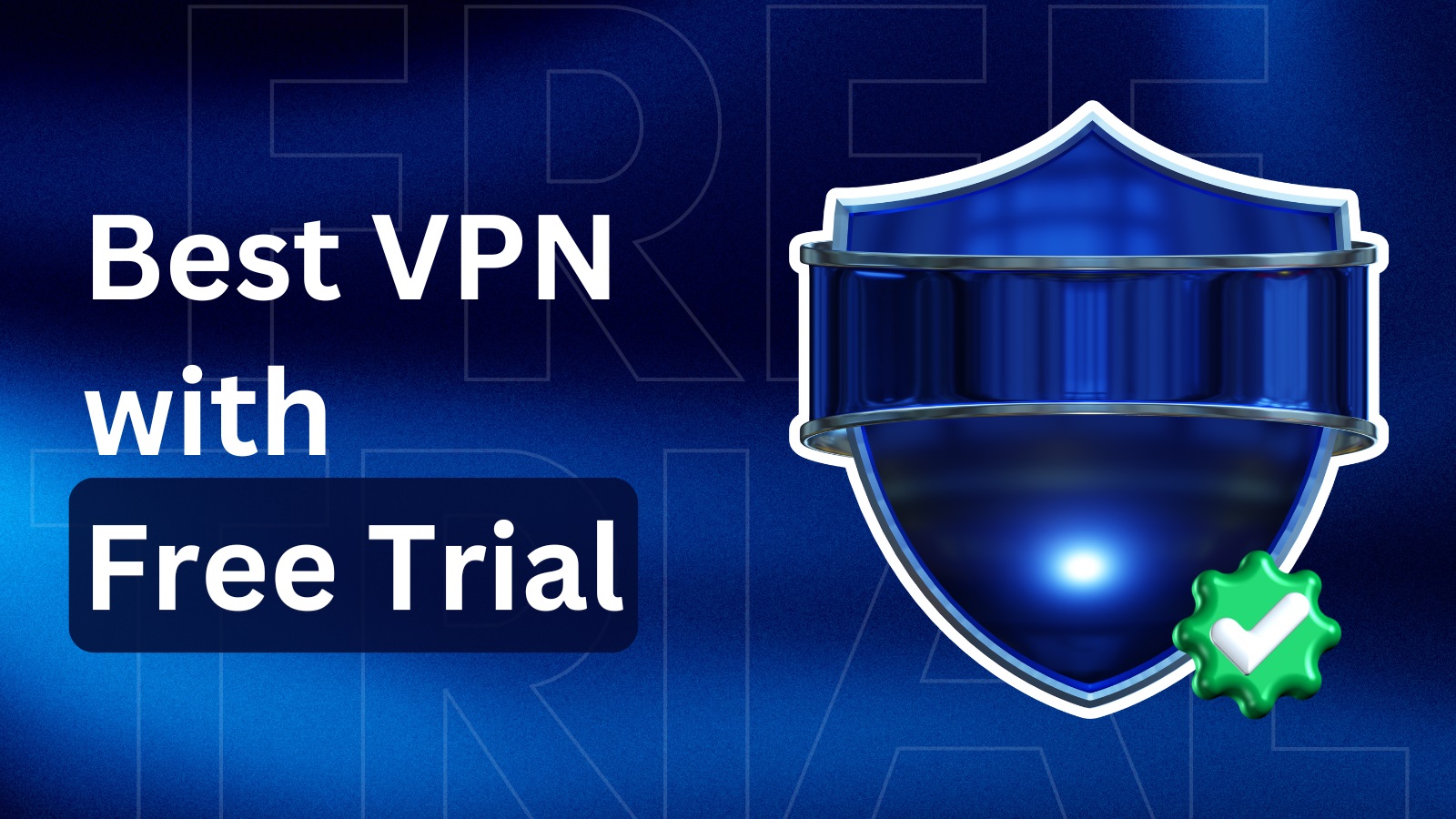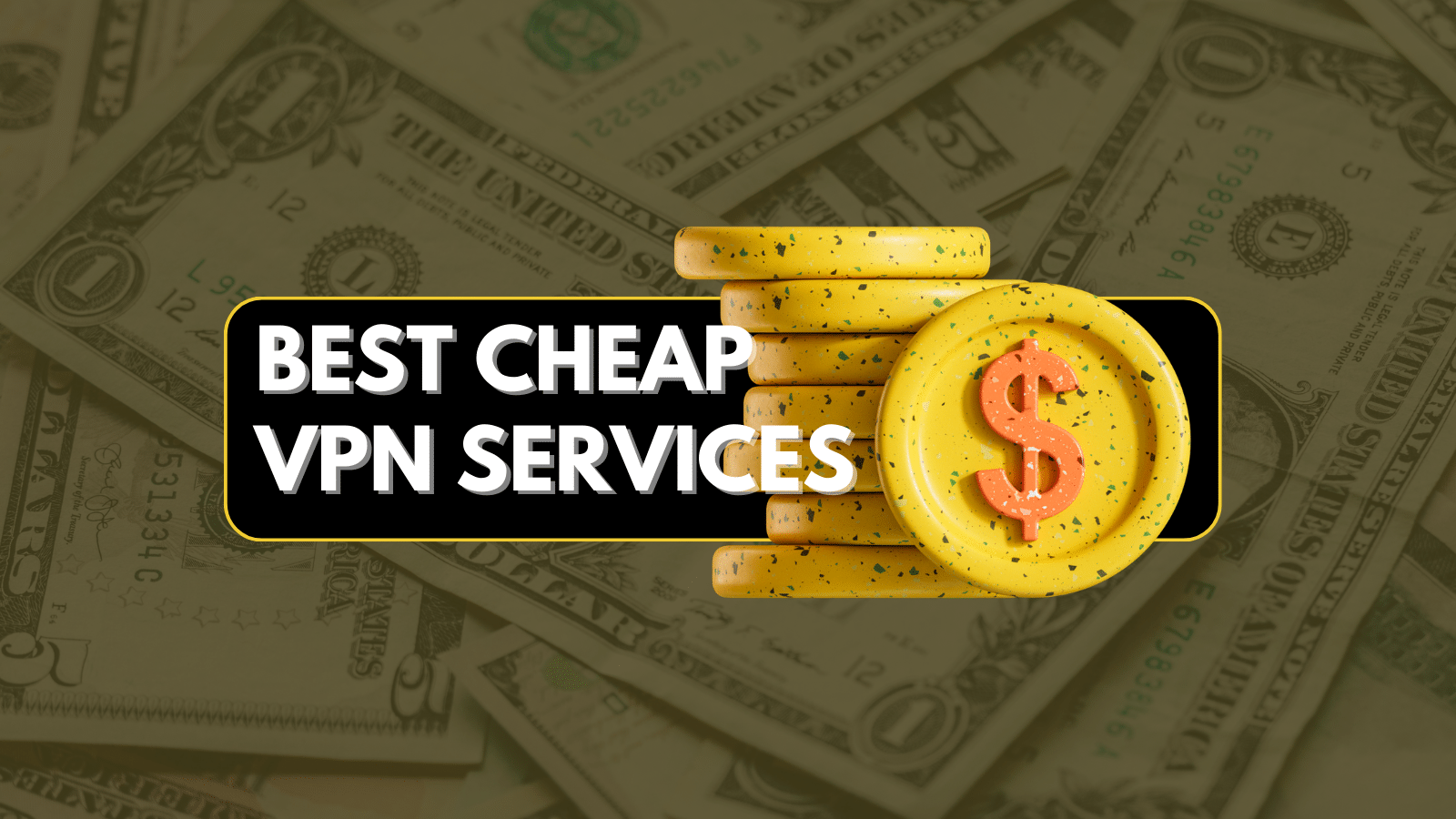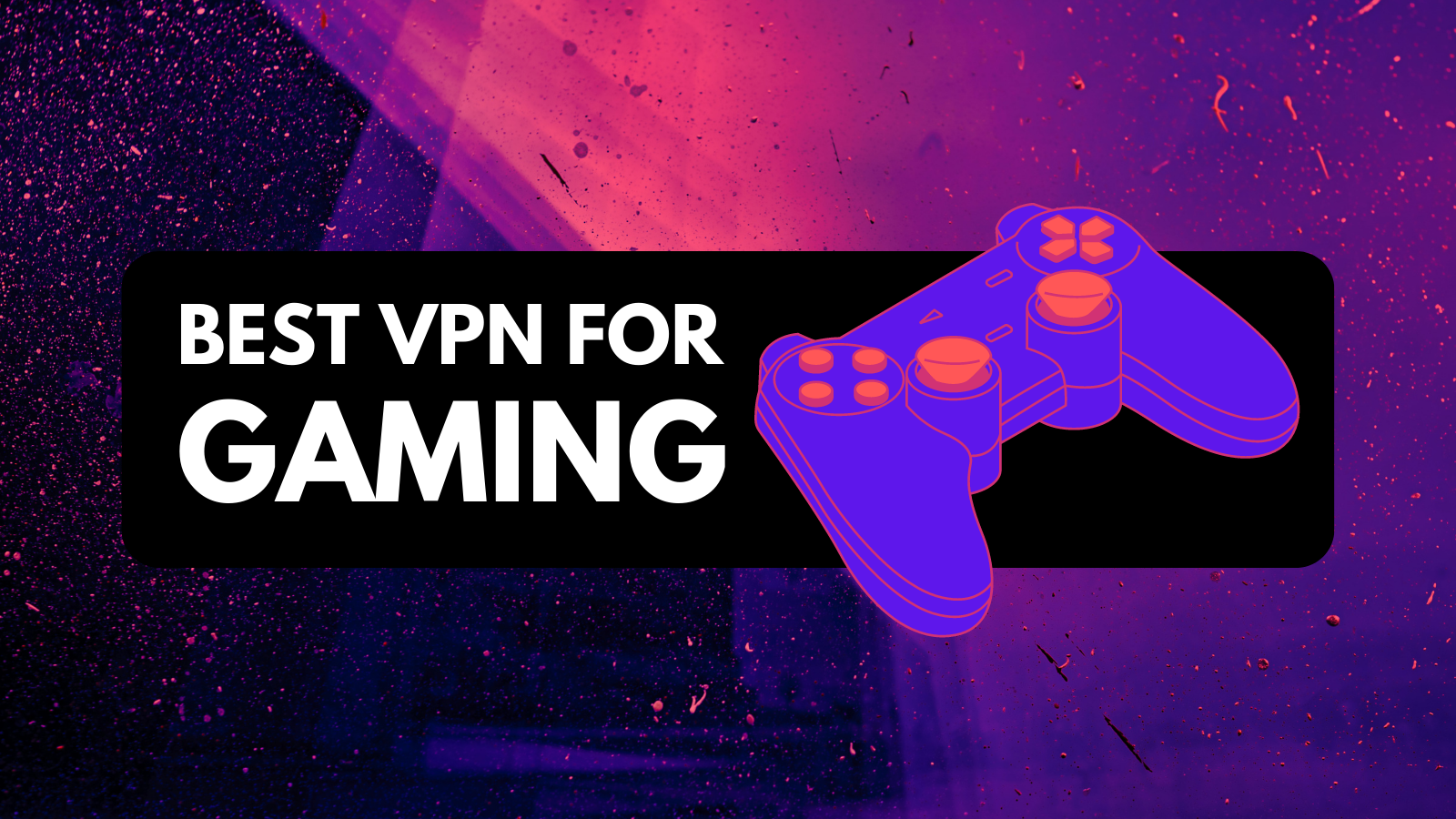When you purchase through links on our site, we may earn an affiliate commission. Here’s how it works.
The 6 Fastest VPNs of 2025
Our experts have reviewed 53 VPN providers, which were put through extensive rounds of testing. To learn more about that process, here’s how we review VPNs, where we explain our criteria and our policy of being fully transparent.
Since they route your traffic through an extra server, any VPN will slow you down. However, things in that regard have drastically changed over the last few years. VPNs are now faster than ever before, bringing more options for you to fine-tune and improve their performance. That said, a high-end VPN should not disrupt your usual activities, such as browsing, streaming, or downloading files.
Of course, using a high-speed VPN is important, but don't overlook the essentials. Aside from smooth and speedy performance, your chosen VPN should offer robust protocols, plenty of servers, modern software, and user-centric logging policies. After all, even the fastest VPN isn't worth much if it's incapable of guarding you against data leaks.
In this guide, we'll discuss the fastest VPN services in 2025, help you compare their performance, explain why fast VPN services are required, explain how they affect speeds, how fast your connection should be for a VPN, how to speed up a slow VPN, and finish with a round of helpful FAQs.
Fastest VPNs - Our Shortlist
- NordVPN - Ultra-Fast & Incredibly Capable VPN for Any Purpose
- ExpressVPN - Speedy VPN That Emphasizes Performance
- Hide.Me VPN - Budget-Friendly VPN for Any Device
- HMA VPN - Combination of Speed & Server Availability
- Surfshark - Reputable VPN for Streaming and Downloading
- IPVanish - User-Centric VPN with Fast Nearby Servers
The Fastest VPN Services in 2025
To find the fastest VPN services, you need to inspect and research their speeds - while paying attention to other features that make the best VPNs overall. More precisely, the most important thing is to get a VPN with fast speeds and stable performance. Then, pay attention to security features, such as a no-logs policy, strong protocols, and bulletproof encryption.
Next, your chosen VPN should also have plenty of servers in as many locations as possible. It should also have the ability to unblock censored or geo-blocked content. Don't forget about obfuscated servers, which help you use smaller data packets to avoid detection, as well as a kill switch, which is how you'll get to prevent accidental data leaks.
You'll also want a sufficient number of simultaneous connections and native applications for all your devices (computers, phones, tablets, etc.). Pay attention to the pricing as well and ensure there's a generous money-back policy that will protect your purchase. Last, your VPN should also offer 24/7 live chat customer support.
Based on the criteria established above, here are the 6 fastest VPNs in 2025:
1. NordVPN – Ultra-Fast & Incredibly Capable VPN for Any Purpose
NordVPN is an ultra-popular high-speed VPN suitable for practically any use. In terms of its speed, you won't be disappointed. As per our latest tests, this VPN will slow you down by 9%, which means that you'll hardly notice this slowdown. Even with a slow connection, NordVPN will let you stream, browse, and download files.
Next, an audited no-logs policy ensures your privacy stays intact. NordVPN also comes with NordLynx, NordWhisper, IKEv2/IPsec, and OpenVPN protocols, combined with AES-256-GCM and ChaCha20 encryption, which should be more than enough to help create a genuinely safe VPN data tunnel.
Looking for the best country for VPN speed? Well, expect 7,400+ servers in 118 countries and use that server army to access the fastest VPN locations and unblock any type of content. NordVPN truly excels in that area and even supports tons of streaming apps. On top of that, obfuscation is present on most servers, and a kill switch is available across all devices.
NordVPN supports 10 simultaneous connections and offers apps for computers, phones, tablets, streaming devices, and routers. You can get started at $3.39 per month for 24 months, without any risk, as NordVPN has a 30-day money-back guarantee. Let's not forget to mention that 24/7 live chat support is part of the VPN's offer as well.
PROS
- Minimal speed throttling.
- Excelling at unblocking content.
- High-end security and privacy.
- Sizable selection of servers.
- 30-day money-back policy.
- 24/7 live chat support.
CONS
- Pricey monthly subscriptions.
2. ExpressVPN – Speedy VPN That Emphasizes Performance
ExpressVPN manages to bring ultra-fast performance paired with high-end security and privacy features. This VPN will slow you down by around 10% only, as our repeated tests have shown. So, you should have no issues, even if your baseline internet connection is slow.
This VPN has an often-audited no-logs policy and uses RAM-only servers. So, there's no chance of your data reaching ExpressVPN servers. Next, there are protocols such as OpenVPN, Lightway, and IKEv2, paired with AES-256 and ChaCha20/Poly1305 encryption. It simply doesn't get better than that!
ExpressVPN has an undisclosed number of servers in 105 countries. It also works great as a tool to fight censorship and bypass streaming geo-blocks, such as those imposed by Netflix, Hulu, Disney+, (HBO) Max, Sling TV, YouTube TV, and similar services. Its entire network is obfuscated, and there's a kill switch across all its apps.
Your subscription to this VPN will get you 8 simultaneous connections. Also, you'll get apps for Windows, macOS, Linux, Android, streaming devices, and even routers. All that is priced at $4.99 per month for 24 months, and your purchase will be backed by a 30-day money-back guarantee. Finally, 24/7 live chat support is available as well, in addition to installation guides, explainers, and more.
PROS
- Ultra-tough security and privacy.
- Servers in 105 countries.
- Unblocks any website.
- Works on any device.
- 30-day money-back policy.
- 24/7 live chat support.
CONS
- On the pricier side.
3. Hide.Me VPN - Budget-Friendly VPN for Any Device
Hide.Me VPN is a relatively simple provider that covers the basics in a user-friendly way. You can expect relatively fast performance when using nearby servers. However, it would help to have a fast connection when using highly remote servers. On average, this VPN will slow you down by 42%.
Like our other recommendations, Hide.Me features a no-logs policy and is a 100% independent VPN provider. You can expect to find protocols like OpenVPN, IKEv2, SSTP, WireGuard, and SoftEther, as well as encryption ciphers such as AES-256, AES-128, Noise protocol framework, Curve25519, Poly1305, BLAKE2, SipHash24, HKDF, and ChaCha20 . In terms of the more advanced features, there's an ad-blocker and the ability to chain two VPN servers.
Right now, Hide.Me features 2,600+ servers in 91+ locations. You can use those to secure your connection, circumvent local censorship, and even unblock a range of digital platforms, including Netflix and Max. A kill switch is also there to ensure your data doesn't leak if something unexpected happens.
A subscription to this VPN comes with 10 simultaneous connections. Also, expect easy-to-use apps for practically all desktop and mobile operating systems. All that is available at $2.69 per month for 24 months, and you can test-drive Hide.Me, thanks to its 30-day money-back guarantee. Lastly, 24/7 live chat support is there as well.
PROS
- Speedy nearby VPN servers.
- All essentials covered.
- Native software across the board.
- Supports torrenting.
- 24/7 live chat support.
- 30-day money-back policy.
CONS
- Missing advanced features.
4. HMA VPN - Combination of Speed & Server Availability
HMA (HideMyass) VPN isn't the most feature-rich VPN provider, but it's known for its extra-wide server spread and fast download and upload (on nearby servers) speeds. Using its default protocol, this VPN will slow you down by around 42% on average.
Even though it has had issues in the past, this is now a no-logs VPN provider known for using a wide range of protocols: OpenVPN (UDP/TCP), Mimic, and WireGuard. Additionally, those protocols are paired with AES-256-GCM and ChaCha20. You can also expect to find a kill switch, split tunneling, and full data leak protection.
With HMA, you get 940+ servers in 210+ countries, many of which are 20Gbps servers. You can use them to bypass geo-blocks with ease, download torrent files, and even play online games. Based on our tests, HMA works with digital platforms like Netflix, Max, and Hulu, which means it's a great pick for unblocking US-based entertainment websites.
Furthermore, one HMA subscription supports up to 30 simultaneous connections, and you can use native apps on Windows, macOS, Linux, and mobile devices. Right now, this VPN costs $2.99 per month for 3 years, and your payment is backed by a 30-day money-back guarantee. Lastly, there is no live chat support, but you get multiple other communication channels (e-mail, support tickets, etc.).
PROS
- Extra-wide server network.
- Proven protocols and encryption.
- Can unblock geo-restrictions.
- Supports P2P traffic.
- Simple-to-use software.
- 30-day money-back policy.
CONS
- No 24/7 live chat support.
- On the basic side.
5. Surfshark – Reputable VPN for Streaming and Downloading
Surfshark is a user-friendly VPN for speed that can achieve ultra-fast performance without any fine-tuning. As such, it's a great option if you're new to the world of VPNs. Based on our tests, this VPN will slow you down by around 44% by default. However, you can fine-tune its performance if you need faster download or upload speeds.
At its core, this is an audited no-logs VPN powered by RAM-only servers. It's based on reliable protocols like WireGuard, IKEv2, and OpenVPN, paired with AES-256-GCM and ChaCha20 encryption ciphers. It also has an antivirus component, an ad blocker, and the ability to use more than a single VPN server.
This VPN provides access to 3,200+ servers in 100 countries, which are evenly distributed. It also provides access to practically any site, so geo-blocks will never be an issue. Whether you want to access a digital service unavailable in your country or visit another country's streaming library, Surfshark will be there to support you. There's also obfuscation and a kill switch to guard you.
Surfshark comes with unlimited simultaneous connections and easy-to-use apps for Windows, macOS, Linux, Android, iOS, streaming devices, and routers. You can get started for $2.19 per month for 24 months and expect a 30-day money-back guarantee to safeguard your purchase. Let's not forget that 24/7 live chat support is also there, as well as email support, support tickets, and more.
PROS
- Suitable for first-time VPN users.
- High-end security features.
- Unlimited simultaneous connections.
- Capable of bypassing geo-blocks.
- 24/7 live chat support.
- 30-day money-back policy.
CONS
- Can take a while to connect.
6. IPVanish – User-Centric VPN with Fast Nearby Servers
IPVanish is long-standing VPN, known for its user-friendliness. It provides stable performance and relatively fast speed while also ensuring proper privacy protection. Based on our tests, it will reduce the speed of your connection by 49% on average.
We'll also add that IPVanish is a verified no-logs VPN service. With this VPN, you can access protocols like OpenVPN, IKEv2, IPSec, and WireGuard, paired with AES-256-CBC with a SHA256 hash algorithm and ChaCha20. The basics are covered quite well, so you can expect reliable digital security and privacy.
Let's not forget to mention that IPVanish has 2,400+ servers in 100+ countries. So, although it is not the biggest server network out there, it does target all of the popular "VPN destinations." It works with plenty of streaming apps, like Netflix, Hulu, Disney+, and Max, but also unblocks 9NOW, RaiPlay, and other non-US services. There's also obfuscation on board and a kill switch that can prevent data leaks.
IPVanish offers unlimited simultaneous connections and simple-to-use applications for phones, computers, streaming devices, and routers. You can get started for $2.19 per month for 24 months, and this VPN is backed by a 30-day money-back guarantee. Like other reputable VPNs, this one also has 24/7 live chat customer support.
PROS
- Stable performance overall.
- Long-standing, trustworthy VPN.
- Good for bypassing geo-blocks.
- 24/7 live chat support.
- 30-day money-back policy.
CONS
- No advanced VPN features.
- Medium-sized server network.
VPN Speed Test: Comparison
Why Do You Need a Fast VPN?
You need a fast VPN to stream HD and 4K video, use your 4G/5G connection without throttling, download torrents fast, and play games with the lowest latency. Here's more info:
- HD and Ultra HD Streaming: A high-speed VPN will allow you to stream in HD and 4K on any device without any buffering. This is especially important if you live in a large household where multiple individuals might stream at the same time.
- 4G/5G Connections: The best, fastest VPN service won't interfere with your 4G/5G connection, which means you'll still reap all the benefits of those types of mobile data connection, including fast download/upload speeds and low latency.
- Fast and Secure Torrenting: A VPN is needed for torrenting to unblock P2P sites and ensure that your P2P traffic remains undetectable by your Internet provider. On top of that, a speedy P2P VPN will also ensure you get fast enough download speeds for large files.
- Better Gaming Experience: If you like to play online games, know that a fast-performing VPN will help you maintain the full speed of your baseline connection. Also, it'll ensure that you have the lowest ping, so you won't have to worry about latency when playing games.
- Bypass Bandwidth Throttling: Some Internet providers implement selective throttling, which might be why you see slow speeds when streaming or downloading files. The best VPN for speed can actually reverse that, allowing you to use the full speed of your Internet connection.
How Did We Test the Fastest VPNs Available?
We test VPN services by actually using them - unlike most other VPN review sites. It means that our findings are based on the real-world performance of each VPN, and we try to provide you with our unbiased opinion. So, when it comes to checking the speed of each VPN, this is a four-step process.
- First, we establish our baseline data by testing our Web connection without a VPN.
- Then, we connect to nearby servers in Italy and the United Kingdom.
- We test long-distance servers in the USA, Canada, India, and Australia.
- We compare the download and upload speeds we got from each round of our VPN tests.
We also test each VPN provider using its default protocol, which is WireGuard in most cases. As noted above, we test both nearby and remote servers, whose results are then displayed in percentages compared to our baseline connection.
The best VPNs slow you down by around 10-15%, which is considered an amazing result. That said, even if a VPN slows you down by 40-50%, that could be considered a good result—if you have a fast enough baseline connection to begin with.
The big question is - what kind of performance can you expect? That's hard to predict, as that depends on your location, chosen VPN protocol, and other things. However, all the numbers you can see above indicate what to expect in general. And more precisely, those numbers let you compare the VPNs we've recommended.
How Does a VPN Affect Internet Speed?
The truth is that any VPN will slow you down—up to a certain extent. However, you must be wondering how exactly VPNs affect your Internet speed. By understanding that, we can discuss how to improve this situation.
Based on what we've said above, these are the reasons why VPNs introduce latency and make your Web connection slower:
- Distance to a VPN Server: In general, nearby VPN servers will perform better than remote ones. By connecting to a remote server, you'll make your data travel more, which introduces latency. That's why we've highlighted the performances of individual VPNs in terms of their nearby and remote servers, so you know what to expect.
- Server Load (Occupancy): If you pick a VPN with a low number of servers, you'll increase your chances of encountering overloaded servers. That will reduce the speed of your Internet connection. To help you avoid this, we've recommended not only the fastest VPN services but also VPNs with plenty of strategically placed servers.
- Level of VPN Encryption: We've done our speed tests using AES-256, the VPN industry's standard level of encryption. Average home users could also get away with AES-126, which will help them achieve faster Internet speeds.
- Chosen VPN Protocol: Every VPN protocol is different. By using OpenVPN, you can expect high-end data security, but that protocol also introduces a bigger slowdown. Modern protocols, such as WireGuard, tend to perform better over time.
- Internet Speed Offered by Your ISP: If you have a very slow Web connection, a VPN might make it impossible for you to stream video (for example). However, if your connection is throttled by your ISP, there's a chance a VPN might improve the overall speed and performance of your Internet connection.
What Is a Good Internet Speed for a VPN?
In general, the faster your Internet speed is, the better. However, to answer the question of how fast your Web connection speed should be (for using a VPN), we'll give you precise numbers.
The table below shows different categories of online activities and recommended speeds for each. We've also included a "VPN tax," helping you predict what to expect once you start using a VPN.
How to Choose a Fast VPN in 2025?
To choose a fast VPN, you need to ensure that it features fast download and upload speeds. However, you'll also want a no-logs policy, strong security, and a vast server network. Here's everything you need to keep in mind:
- Performance and Speed: Your chosen VPN should offer fast download and upload speeds, ensuring you get to keep up with all your favorite online activities.
- No-Logs Policy: A no-logs policy will ensure that no one sees your data, not even your VPN service. If possible, sign up for a VPN with an audited no-logs privacy policy.
- VPN Protocols and Encryption: WireGuard is great if you want ultra-fast speeds. If you care about privacy and security, go with OpenVPN, which should be paired with AES-256.
- Server Network Size: Remember that nearby servers will get you the fastest performance, as those are always the fastest VPN servers. You'll also want remote servers as well, to unblock content.
- Ability to Unblock Content: Speaking of unblocking online content, you'll want a VPN that can bypass censorship and work against regional geo-blocks.
- Obfuscated Servers: Obfuscation will help you hide your VPN traffic, which means that not even your Internet provider won't know that you use a VPN to re-route your data.
- Kill Switch and Split Tunneling: A kill switch helps prevent data leaks, while split tunneling lets you create a pair of data tunnels for your non-VPN data as well.
- Simultaneous Connections and Supported Devices: Ensure you get coverage for all your devices using a single VPN connection, and you'll want native software across the board.
- Pricing: A high-performing VPN doesn't have to cost a lot. If you're on a budget, know that you can find some amazing deals when investing in multi-year subscriptions.
- Money-Back Guarantees: A VPN with a generous money-back policy will give you plenty of time to test-drive its features, so you'll be making a risk-free purchase.
- Customer Support: Finally, ensure there's 24/7 live chat support, which is always the best way to troubleshoot and resolve any technical issues.
How to Speed Up a Slow VPN?
To speed up a slow VPN, we recommend trying a different server as well as switching to another protocol (for example, from OpenVPN to WireGuard). In most cases, those two actions should help you increase VPN speeds.
Also, stick to nearby VPN servers, which is a foolproof way to increase VPN speed. You can also try downgrading the level of encryption (from AES-256 to AES-128, for example) if your VPN app gives you that option. And, of course, make sure your VPN is up-to-date at all times.
We have a dedicated article on how to speed up slow VPN services, so make sure to take a look. As you'll see for yourself, we recommend using a nearby server (instead of a remote one), installing a VPN on your router, taking advantage of split tunneling, and more.
Final Thoughts
Even though any VPN service will slow you down a bit, making an effort to high-performing one is always a smart decision. Every VPN is different in terms of its performance, and you'll want the best possible experience. That said, a fast VPN will let you stream, download, and browse without any slowdowns, and some might even help you bypass ISP-induced throttling.
We recommend NordVPN if you want ultra-smooth performance, high-end security, and the ability to unblock any site. Also, you can go with ExpressVPN if you need high-end speeds and total obfuscation. Those two are the fastest VPNs in 2025, known for the speed of their connections and a massive list of features that make your browsing safe, private, and unrestricted.
When it comes to our other recommendations, VPNs like Hide.Me and HMA are very reliable options for everyday use, even though Surfshark is perhaps the most user-centric VPN out there. It's also known for having P2P-friendly servers, making it suitable for torrenting. In the end, we also have IPVanish, a fully automated VPN that does all the heavy lifting for you.
This is where we conclude our guide. If you have any questions or doubts, feel free to post a comment below. Thank you for reading!

